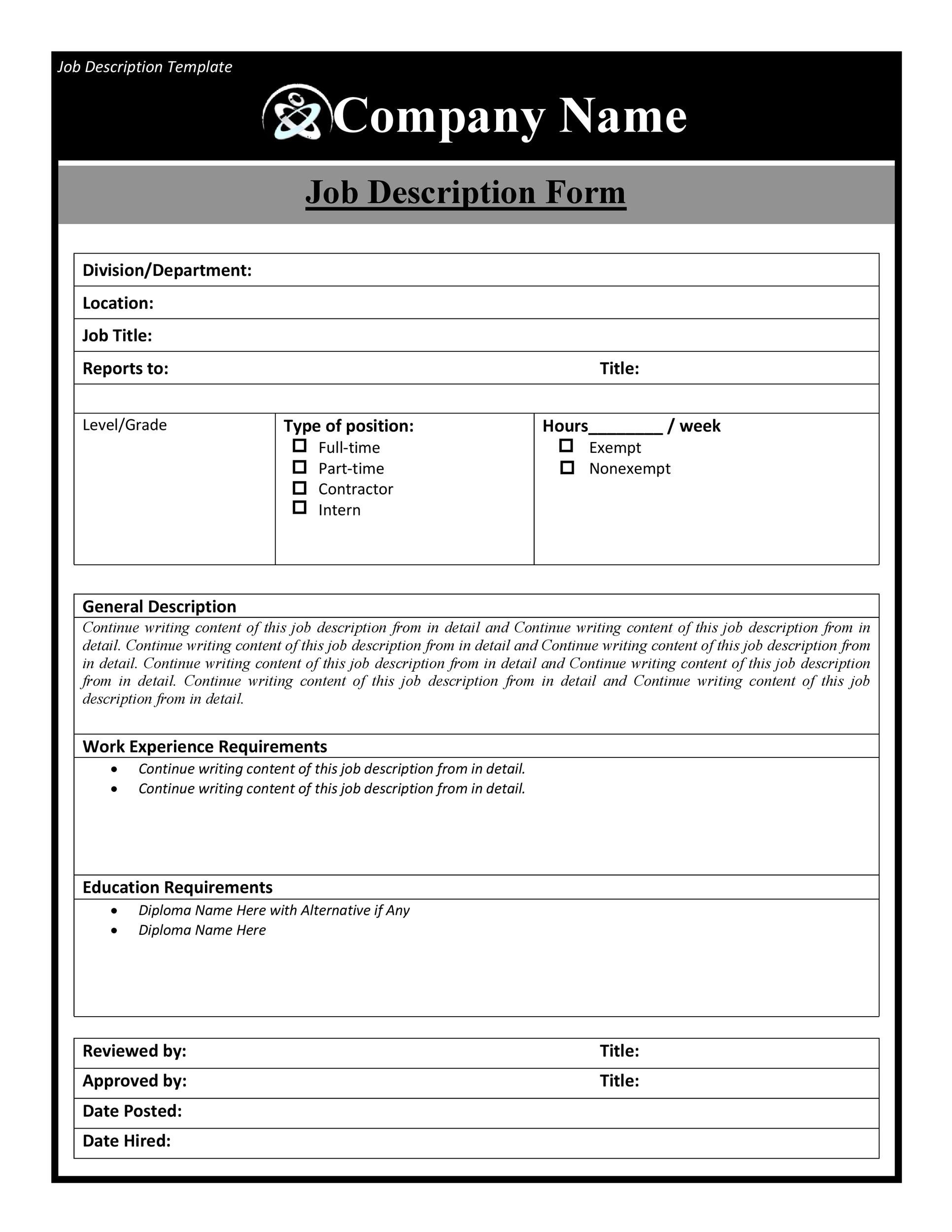Top Job Responsibilities You Can Excel In

The world of work is vast and varied, presenting a myriad of job responsibilities across different sectors. Whether you're a seasoned professional or just stepping into the workforce, understanding the key job responsibilities can help you excel in your career. Here’s a detailed look at some of the top job responsibilities across various industries:
Leadership and Management

Leadership isn’t just about managing people; it’s about inspiring, guiding, and steering your team towards common goals. Here are some key responsibilities:
- Strategic Planning: Developing long-term visions and strategies.
- Team Development: Coaching and mentoring individuals to achieve their potential.
- Conflict Resolution: Navigating disagreements and fostering a collaborative environment.
- Performance Management: Evaluating employee performance, setting goals, and offering feedback.
- Decision Making: Making critical decisions that affect the company’s direction.
Notes on Leadership:
💡 Note: Effective leadership also requires emotional intelligence and the ability to adapt to rapidly changing environments.
Project Management

Project managers are the backbone of operational success, handling:
- Project Scope Definition: Outlining the project's boundaries and objectives.
- Resource Allocation: Managing team, tools, and time efficiently.
- Risk Management: Identifying potential risks and planning mitigation strategies.
- Stakeholder Communication: Keeping everyone informed and engaged.
- Monitoring Progress: Ensuring projects stay on track with scheduled reviews.
Sales and Customer Relationship Management

Sales roles are pivotal in revenue generation and customer satisfaction. Here's what you'll need to excel:
- Lead Generation: Identifying potential customers and turning leads into sales.
- Client Meetings: Building and maintaining relationships through regular interaction.
- Negotiation: Securing deals with favorable terms for both parties.
- Product Knowledge: Having in-depth understanding to guide potential buyers.
- Reporting: Tracking sales performance and forecasting future trends.
Technical Roles
Whether you’re a software developer, engineer, or IT specialist, these responsibilities are common:
- System Design and Implementation: Creating and integrating new systems or applications.
- Problem Solving: Debugging and resolving technical issues efficiently.
- Documentation: Keeping detailed records of systems and processes.
- Innovation: Staying current with technology trends to improve products and services.
Marketing and Communications

Marketing professionals are at the forefront of brand visibility. Their key responsibilities include:
- Brand Management: Shaping and maintaining the company’s brand identity.
- Content Creation: Developing campaigns, ads, and promotional material.
- Market Research: Analyzing markets to inform strategy.
- Digital Marketing: Managing SEO, social media, and online ads.
- Event Coordination: Planning and executing promotional events.
Administrative and Support
Administrative roles are essential for smooth day-to-day operations:
- Office Management: Overseeing office supplies, schedules, and logistics.
- Data Entry: Ensuring accurate record keeping.
- Communication Liaison: Managing internal and external communications.
- Travel Arrangements: Planning and booking for business travel.
To excel in any of these roles, understanding the core responsibilities and continuously developing your skills in those areas is vital. Whether it's leading a team, managing projects, closing sales, or creating innovative marketing campaigns, the essence lies in dedication to your craft, continuous learning, and adaptability.
Final Thoughts
Success in any job hinges on understanding and mastering your responsibilities. Your dedication to these duties not only drives personal growth but also contributes significantly to organizational success. Keep learning, adapt to changes, and embrace the challenges to truly excel in your job roles.
What are the key skills for project management?
+Key skills for project management include strategic planning, risk assessment, communication, and time management. Tools like Gantt charts and project management software can also be beneficial.
How can I improve my leadership skills?
+Improving leadership skills involves embracing continuous education, practicing emotional intelligence, gaining experience in various scenarios, and seeking mentorship. Reading books on leadership and attending workshops can also be helpful.
What are the primary challenges in sales?
+Challenges in sales include dealing with rejection, maintaining client relationships, accurately forecasting demand, and adapting to market changes. Effective salespeople also need to be skilled in persuasion and negotiation.



